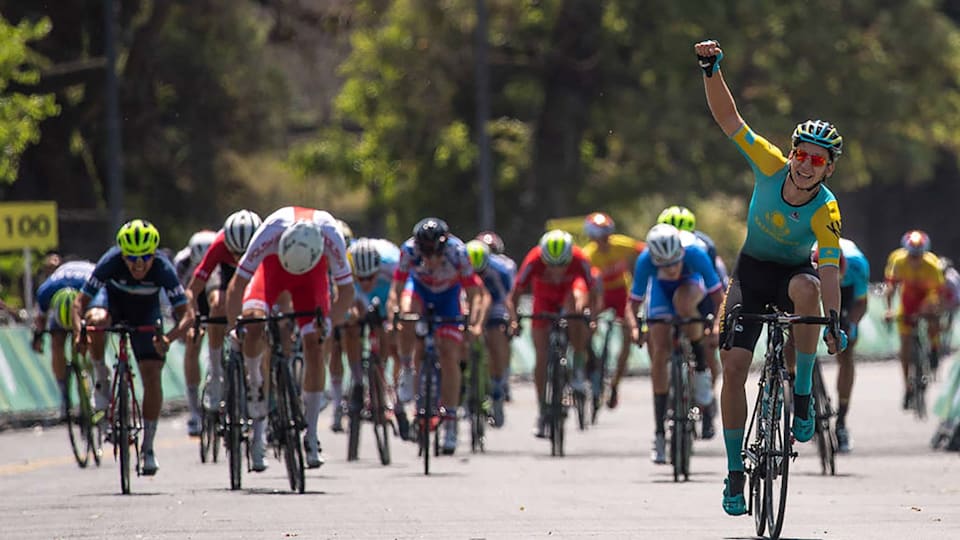Riders embrace change as Danes and Kazakhs seal victory
The fast-moving five-day combined team events at the Youth Olympic Games Buenos Aires 2018 came to an end on Thursday 17 October, with Denmark’s Sofie Heby Pedersen and Mie Saabye taking the women’s gold and Kazakhstan’s Gleb Brussenskiy and Yevgeniy Fedorov the men’s.

“We had a terrible race today,” Saabye said after the criterium. “When we crossed the line, I thought we’d lost. But luckily we’d done enough already. Our coach worked it out and told us. I think Sofie was our secret weapon because she is equally good on the mountain bike and the road.”
Meanwhile, the Kazakhs claimed that their edge came from training both on- and off-road for a year. “We trained according to a plan, and rode mountain bikes from the start of the season,” said Fedorov. “We were at peak form by the time we got to the YOG.”
The innovative competition format saw athletes paired up across five different races, which meant mountain bikers taking the road, and road racers put to the test on cross-country routes.
It all made for some exciting racing and an all-round test that went down well with the riders, among them Austria’s Laura Stigger, who finished with a silver medal in the women’s event alongside team-mate Hannah Streicher, ahead of Hungary’s Virag Buzsaki and Blanka Vas.
“I think it is a great way of doing it, and it’s produced a very special competition,” said Stigger. “It’s true I would have got a gold medal in the mountain bike (combined cross-country eliminator) if it had been set up as an individual event, but I enjoyed being with a partner. We won and lost together and were a true team. That is important. I’m not annoyed I didn’t get a gold.”
Simone Avondetto of Italy echoed those views after finishing sixth with teammate Tommaso Dalla Valle in the men’s standings. “It was a good idea, scoring it like this,” he said. “You get points each day and it’s exciting moving up and down the table. You sit and work out the points and your tactics at the end of each day, and then it’s decided.”
Taking second place behind Brussenskiy and Fedorov were the Luxembourg duo of Arthur Kluckers and Nicolas Kess, with Great Britain’s Harry Birchill and Sean Flynn claiming the bronze.
“I’m terrible at maths,” said criterium winner Birchill, giving his views on the format’s endless permutations. “At the end of each race, you’d be calculating where you need to finish the next day, what points you need, and talk tactics. But this event was positive, because it could change with each race.”
The set-up also resulted in some teams working together across national boundaries to assist each other in races where it would be mutually advantageous.
Harriet Harnden of Great Britain co-operated with Stigger on the cross-country short circuit to maximise their points tallies. As they crossed the line, a grateful Stigger shouted, “I love you” to Harnden.
“I wasn’t expecting that but it was nice,” said Harnden of Stigger’s declaration of affection. “It was fun working with another country and it shows the bond we have as cyclists. It’s the most tactics I’ve ever used in a bike race.”
After five gruelling days of riding, the athletes were all thoroughly exhausted.
“I’m so tired after all the riding that I just pass out afterwards,” said New Zealand’s Phoebe Young, who placed eighth with team-mate Samara Maxwell in the women’s competition. “You want to go and talk to people around the Youth Olympic Village but I just eat food and fall asleep. I’m gone in about three seconds.”
